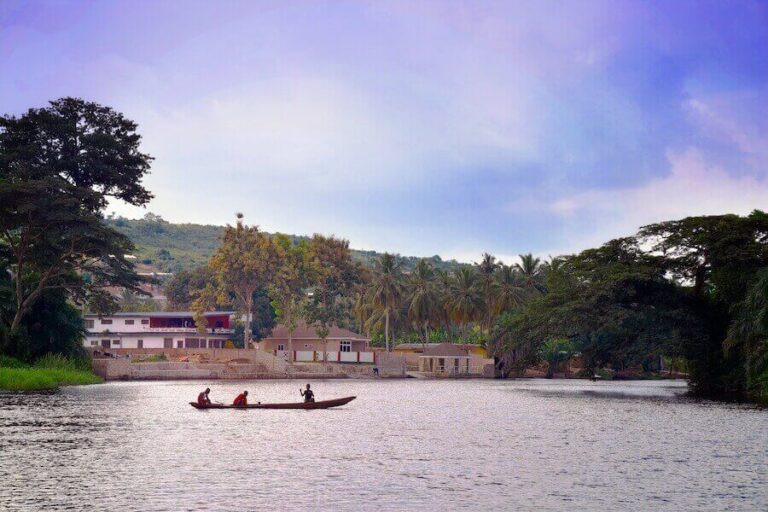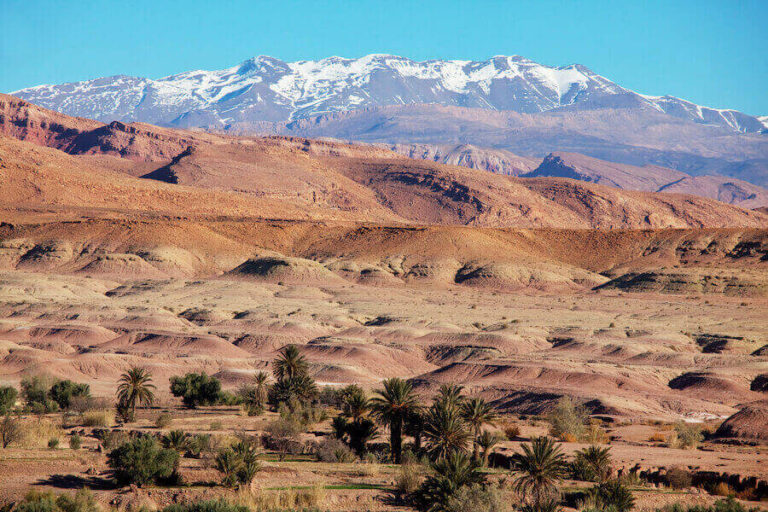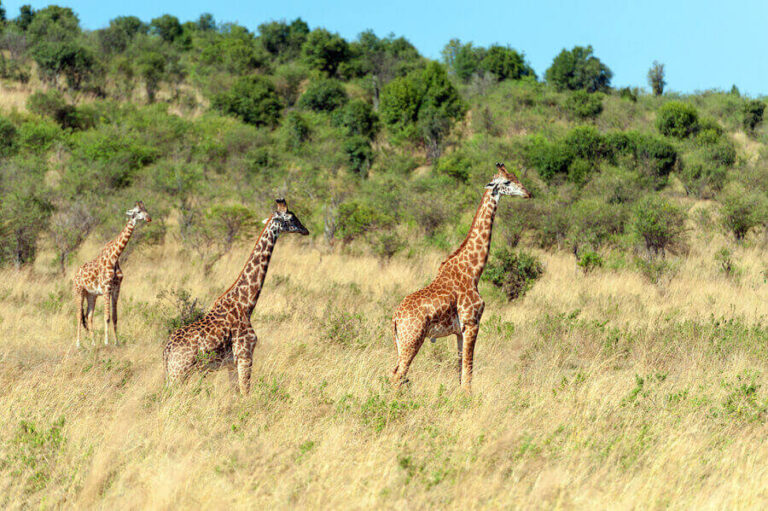Does It Snow In Nigeria
No, it does not snow in Nigeria. Nigeria experiences tropical weather with mainly hot and humid temperatures throughout the year. There are some areas of the country that experience cooler temperatures during certain seasons but no regions experience snowfall.
Nigeria Overview
Nigeria is a West African country bordered by Benin, Niger, Chad, and Cameroon. It is the most populous nation in Africa with over 200 million people calling it home.
Nigeria has an incredibly diverse population of more than 500 ethnic groups and languages. The official language is English, but many other languages are spoken throughout the country as well.
The country’s economy relies heavily on oil production, which accounts for nearly 80% of its exports and 25% of its GDP. Other major industries include agriculture, banking, and telecommunications.
Despite this economic growth, there are still high levels of poverty in the country due to inadequate infrastructure development as well as rampant corruption within government institutions.
With vast natural resources including arable land for farming and abundant mineral deposits such as gold and petroleum reserves, Nigeria has great potential for future economic prosperity if these issues can be addressed effectively.
Nigeria For Travel
Nigeria is a vibrant African nation that offers something truly special for travelers. With its inviting culture, delicious cuisine, and stunning natural beauty, it’s a must-visit destination.
The food in Nigeria is all about diversity – from the flavorful Jollof Rice to succulent grilled meats, there are endless possibilities for a culinary adventure. Nigerian street food is also a highlight, with vendors selling everything from plantain chips to fried yam.
Nigeria’s landscapes are just as varied and interesting from the vast savannah of the north to the lush rainforest in the south. Wildlife spotting is also incredibly popular in Nigeria – whether you’re looking for lions and cheetahs or primates and birds – this is a good place to enjoy the amazement of the country’s wildlife reserves
Nigerians are known for their strong sense of culture and hospitality. You will find plenty of beautiful hand-loomed textiles to local jewelry when it comes to arts and crafts.
Additionally, take part in exciting cultural experiences such as festivals and traditional dancing or simply immerse in the vibrant music scene. You can also explore some of Nigeria’s historical landmarks like Zuma Rock or Lekki Conservation Centre while enjoying unique attractions like Shrine Night Clubs.
Nigeria Climate
Nigeria has a tropical climate, with year-round warm temperatures and seasonal heavy rainfall. The weather in Nigeria varies depending on location, as it stretches from the southern Atlantic coast to the more inland northern regions.
In the south of Nigeria, near the coast, temperatures are typically hot and humid. The wet season lasts from March to October, with the rainy season peaking in August and September. During these months, there are frequent heavy downpours that can cause flooding.
In the central region of Nigeria, around Abuja, and other inland areas, temperatures range from hot to cold depending on the season. The dry season runs from November through March here and is characterized by cooler temperatures and lower levels of rainfall.
In the north of Nigeria, in the states of Sokoto and Katsina, temperatures are hot for most of the year. The dry season is longer here than in the south, typically lasting from October until May. During this time, only light rain showers occur infrequently.
Winter In Nigeria
Winter in Nigeria sees temperatures ranging from tropical to temperate depending on the region. While it can be quite chilly in some parts of the country during winter months (December-February), it’s still much warmer than other places in the world at this time of year.
Generally, Nigeria experiences two distinct seasons: rainy and dry. The rainy season usually runs from April through October, while the dry season runs from November through March. During this period, temperatures tend to drop significantly and Nigerians may need to bundle up against the cold weather.
Winter brings cooler nights, especially in areas like Abuja where the average night temperature drops down to as low as 10°C (50°F). However, days remain mild with an average temperature of about 20°C (68°F) during daytime hours making for a pleasant atmosphere overall.
When Does It Snow In Nigeria
The African country never sees snow due to its climate, terrain, and geographical location.
December Climate And Snow In Nigeria
December in Nigeria is an interesting month, with a wide variety of weather patterns across the country. Temperatures are generally moderate, ranging from the low to mid-20s (°C) in the south and dropping to below 10°C in some areas of the northeast.
The coastal regions tend to have more mild temperatures throughout the month, though it can still get quite chilly in some places.
Precipitation varies significantly, with the south receiving more rain and the northeast receiving much less. During the dry season, December is typically a good month to visit as there are fewer chances of rainfall and higher temperatures. However, be sure to bring a jacket for cooler evenings!
January Climate And Snow In Nigeria
January in Nigeria is a mild, pleasant month with temperatures ranging between an average low of 20°C (68°F) and an average high of 30°C (86°F). The higher humidity levels and heat can make it feel a bit uncomfortable at times but excellent for outdoor activities. Rainfall is low in January, making it a good dry season month.
January in Nigeria is slightly cooler than December, with temperatures ranging from an average low of 19°C (66°F) to an average high of 28°C (82°F).
February Climate And Snow In Nigeria
February in Nigeria is usually characterized by warm and humid weather, with temperatures ranging from an average low of 18.3°C (64.9°F) to an average high of 29.4°C (84.9°F). February is one of the driest months of the year in Nigeria. Places like Lagos receive average precipitation of 42mm (1.65 inches) with 2.7 days of rainfall.
Where Does It Snow In Nigeria
Nigeria does not experience snow fall.
Winter And Snow In Nigeria’s Major Cities
Winter In Lagos
In winter, Lagos, Nigeria can be quite cool with temperatures ranging from 19 to 28 degrees Celsius (66-82°F). Generally speaking, the weather is dry and breezy with occasional light showers. The nights tend to be cooler than the days, so if you plan to visit Lagos during the winter months it’s important to bring layers.
If you’re looking for a winter escape, Lagos can be a great destination. It’s known for its vibrant nightlife, stunning beaches, and plenty of cultural attractions to explore.
For example, the city is home to some amazing museums such as the National Museum of Nigerian History. You can also visit historic landmarks like Tinubu Square, the Oba’s Palace, and the National Theatre.
Winter In Ibadan
Winter in Ibadan is usually mild and pleasant, with temperatures ranging from a low of around 13°C (55°F) to a high of about 25°C (77°F). It rarely gets cold enough for snow or ice, but when it does, the city experiences an exciting transformation that brings plenty of joy to the locals.
During the coldest months, November through February, people bundle up in winter coats to brave the chill and take advantage of the mild temperatures.
The city comes alive during this time as Ibadaners don their best winter wear and head out for a day at Osun Sacred Grove or Egungun Festival. Whether it be visiting historical sites, celebrating the festivities of the Egungun Festival, or trying out some local delicacies, there are plenty of opportunities to get outdoors and experience winter in Nigeria.
Winter In Abuja
In Abuja, the capital city of Nigeria, winter is a beautiful and pleasant season. Temperatures are usually mild with average lows of 19 to 21 degrees Celsius and highs of 28 to 31 degrees Celsius. The cooler temperatures make winter the perfect time to explore Abuja’s many attractions.
A visit to the National Mosque will reveal beautiful architecture and interesting insights into Islamic culture. The museum at Aso Rock is an amazing display of Nigerian history, with artifacts, paintings, and sculptures that tell stories about Nigeria’s past and present.



![Does It Snow In Ethiopia [Winter Travel]](https://offseasonbackpack.com/wp-content/uploads/2023/01/does-it-snow-in-ethiopia-768x512.jpg)

![Does It Snow In Algeria [Winter Travel]](https://offseasonbackpack.com/wp-content/uploads/2023/01/does-it-snow-in-algeria-768x512.jpg)